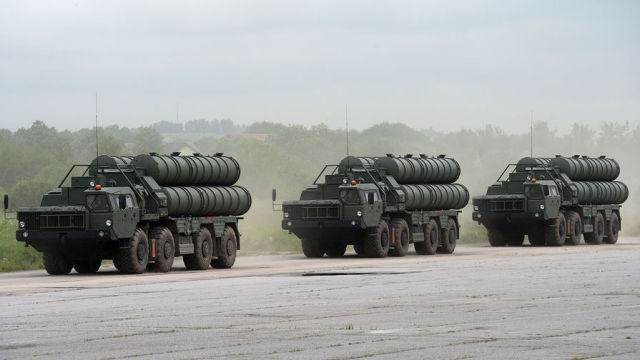Saudi Arabia can buy weapons from Russia because of the refusal of the United States
Saudi Arabia plans to buy the S-400 Triumph air defense system, Su-35 fighter jets and other weapons from Russia after the US temporarily banned the sale of weapons to the kingdom, writes the American edition of The National Interest. At the same time, the publication admits that the plans of Riyadh are already facing stiff resistance from Washington.
The administration of US President Joe Biden has announced a temporary freeze on arms sales to Saudi Arabia, part of a strategy by the new White House team to reassess relations between Washington and Riyadh.
However, the Saudis have no shortage of other arms exporters competing in the market with the United States. For example, Russia provides equipment in which Saudi Arabia is interested, writes the American edition of The National Interest.
For example, Saudi Arabia has repeatedly explored the possibility of buying the Russian S-400 Triumph missile defense system. In 2009 and in 2017, there was news that the Saudis had reached an agreement with Moscow on the purchase of several S-400 divisions.
In September 2019, Saudi air defense failed to effectively repel a drone attack on the world's largest primary oil processing plant in Abqayq in the east of the country and on an oil refinery in the Hurais oil field. Both facilities are owned by the oil giant Saudi Aramco.
In this regard, Russian President Vladimir Putin indicated that Riyadh should buy S-300 or S-400 systems to protect its refineries. "It is enough for the political leadership of Saudi Arabia to make a wise state decision, as the leaders of Iran did in their time by purchasing the S-300, and President [Turkish President Recep Tayyip] Erdogan did by purchasing the latest S-400 Triumph air defense systems from Russia," the head of the Russian Federation said.
At the moment, it seems that the only obstacle to signing an agreement on the import of S-400 is Saudi Arabia's fears of an imminent US reaction in the form of sanctions and cuts in foreign aid spending, writes NI.
"The list of the Royal Saudi Air Force consists of just under 200 aging F-15 Eagles. In 2017, the Kremlin proposed to upgrade the Riyadh fleet with Su-35 fighters - one of the leading Russian aircraft for air superiority and one of the most successful export fighters," the NI article says.
At the same time, the author of the material admits that, as in the case of the S-400, Saudi Arabia's plans for the purchase of fighter jets are probably already facing stiff resistance from Washington.
In addition, in 2019, Riyadh signed a deal with the Russian defense giant Rostec for the production of the AK-103, a submachine gun derived from the AK-74M with a 7.62 × 39 mm cartridge, and also signed an agreement on the import of these weapons.
In addition, in 2017, Saudi Arabian Military Industries (SAMI) signed a major contract with Rosoboronexport for the production of heavy flamethrower systems TOS-1A, developed on the basis of the Soviet T-72 main battle tank.
Finally, SAMI has already purchased the "Kornet-EM" - an improved version of the anti-tank guided missile (ATGM) 9M133-which boasts anti-jamming protection in addition to improving the tracking function, which makes it possible to operate it on the principle of "shot and forget".
The fact that the White House has decided to temporarily ban the sale of weapons to the United Arab Emirates and Saudi Arabia, The Wall Street Journal wrote yesterday, citing sources in Washington's power circles.
According to the interlocutors of the publication, the aides of the head of state "conduct assessments of transactions for the supply of weapons worth billions of dollars" approved during the presidency of Biden's predecessor, Donald Trump.
Washington, in particular, wants to be sure that the weapons in question will not be used in Yemen, the WSJ explained.
As US Secretary of State Anthony Blinken said after the release of this information, Washington believes that the actions of Saudi Arabia against Yemen have caused the worst humanitarian crisis of our time.
Andrey Ermolov

